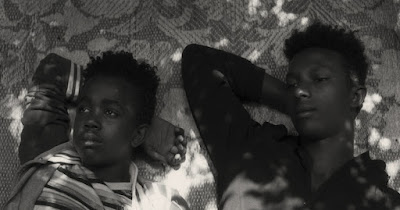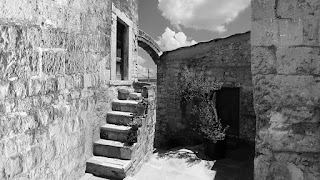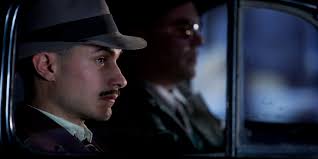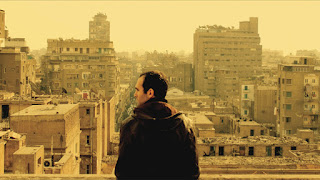The word ‘global’ has been used for a few decades but it truly took on a new meaning in 2020 when all countries around the world were impacted, albeit in different measures. The everyday lives of all people around the world was disrupted/stopped/changed in 2020. This included lockdown of societies such as halting of all sporting events around the world (professional/amateur) and the closing of all cinemas. Film festivals were canceled, postponed or moved to a virtual version. This directly impacted me as well. I had my ticket booked for Buenos Aires to attend BAFICI in April, a film festival I have wanted to attend for more than a decade. After SXSW film festival was the first major film festival to cancel in late March, others followed including BAFICI. Shortly after that, my film festival canceled my programming contract thereby cutting my 16+ years association with the film festival. However, the impact to me was minor giving the larger ramifications across the film world.
As the year progressed, it became clear that big studio films would get released one way or another, be it in a physical cinema in 2021 or digitally. However, the same couldn’t be said of independent films and countless foreign films. A lot of these films depend on the film festival circuit to gain distribution and traction. The disruption of the film festival calendar meant that a lot of these films were orphaned and even now, it is not clear if many of these films will find a home in 2021 when the cinematic field will be crowded by new films or delayed 2020 films.
The following list consists of many films (both 2019, 2020) that are still without a proper home and I truly hope that these films get distribution in 2021 and are seen by a wide audience.
Top 12 Films seen this year
1. The Body Remembers When the World Broke Open (2019, Canada/Norway, Kathleen Hepburn, Elle-Máijá Tailfeathers)
The Body Remembers When the World Broke Open
is an essential film about domestic abuse that deserves to be seen by
as many people as possible. By depicting events in real time, and
keeping the aggressor off-screen, the two directors highlight abuse from
the everyday complex decisions that impact people trapped in such
relationships.
2. Just like That (2019, India, Kislay)

The mother is a revered character in Indian cinema and society (‘Mother India’), someone who is selfless and devoted to her husband and family. This portrayal has hardly been challenged in Indian cinema, especially Bollywood films which depict mothers as always standing by their husband/sons/families and often these films resort to depicting mothers as overly melodramatic characters speaking cliched dialogues. This is why Kislay’s debut feature is refreshing. The main character, Mrs. Sharma, is a 74 year-old woman who has recently become widowed. She is expected to live like other widows before her but she defies expectations. Mrs. Sharma wants to be independent, dares to open her first bank account, wants to go shopping at the mall, eat ice-cream, learn sewing and wants to live by herself in the upstairs portion of her son’s house. Her independence isn’t taken well, not by the son, daughter-in-law, neighbours and other family members. The film doesn’t just focus on Mrs. Sharma and the camera quietly captures intimate moments showing other family members and highlights problems caused by the patriarchal structure of society.
Such problems aren’t only restricted to India but impact all nations in varying measures. In this structure, women (young, married or widowed) are always expected to follow protocol but men are given leeway to behave as they please. Well Mrs. Sharma isn’t having any of that! For her entire life, including over 5 decades of married life, she followed protocol. Now at the age of 74, she is standing up for herself. Of course, her revolution isn’t loud or grand but consists of many tiny gestures; the kind of tiny gestures that are rare to find in cinema. This attention to detail is just one of the aspects that makes this one of the most precious films I saw this year.
Collective starts by investigation of suspicious deaths in hospitals but expands its frame to look at a larger corrupt system that links media, big pharma, political parties and hospitals. The film is set in Romania but its scope extends to all nations, regardless of whether they use public or private healthcare.
This urgent documentary came out in 2019 but is easily one of the most relevant films of 2020 because this year more people became aware of what epidemiology is and what the role of disinfectants is in keeping people safe. This film is a chilling reminder that bacteria doesn’t care for people’s official titles or beliefs.
4. The Alien (2020, Iran, Nader Saeivar) tied with
There is no Evil (2020, Iran, Mohammad Rasoulof) tied with
Just 6.5 (2019, Iran, Saeed Roustayi)
Three different Iranian films but put together they provide an overarching picture of how oppressive government decisions and policies place undue stress on citizens.
The Alien, co-written by Jafar Panahi, shows how fear of an oppressive government can cause ordinary citizens to turn on each other or live in a state of perpetual anxiety.
There is no Evil illustrates the emotional toll on people that are tasked with carrying out the death penalty.
Just 6.5 is a high-octane thriller that shows social problems of addiction, homelessness, crowded jail cells with unflinching reality while featuring some of the most creative police procedural scenes shown in a film.
5. You Will Die at 20 (2019, Sudan co-production, Amjad Abu Alala)
A lovely fable about the never ending tussle between tradition and modernity, blind faith and science. The air of inevitability that hangs over the film reminds a bit of Abderrahmane Sissako’s Timbuktu while some dialogues and the Sudanese setting feel like a continuation of Tayeb Salih’s stellar book Season of Migration to the North.
6. El cuidado de los otros/The Care of Others (2019, Argentina, Mariano González)
The Care of Others is an absolutely sublime film that combines the filmmaking strengths of the New Argentine Cinema with that of the Dardenne brothers. Sofía Gala Castiglione gives an emotionally devastating performance as the character of Luisa who has to grapple with guilt over her inadvertent part in a tragic incident.
7. Piedra Sola (2020, Argentina/Mexico/Qatar/UK, Alejandro Telémaco Tarraf)
Alejandro Telémaco Tarraf’s Piedra Sola is an immersive docu-drama that travels to a remote village high up in the Andean mountains bordering Northern Argentina and Bolivia, a location where past and future exchange places inverting our concept of time. The end result is a hypnotic film that overloads the senses.
8. Exil (2020, Germany/Belgium/Kosovo, Visar Morina)
A powerful film that shows how racism and discrimination in an office setting is hidden under the guide of microaggression and gaslighting and can be difficult to prove. Xhafer (Misel Maticevic) is convinced he is being targeted because he is originally from Kosovo. His colleagues struggle to say his name, try to sabotage his work but he can’t prove their intent. Slowly, he starts to lose his bearings resulting in his emotions spilling over. The slow-burn resulting in an explosion of emotions shares some sentiments with Maren Ade’s Everyone Else. This highly relevant film, co-written by Ulrich Köhler and also starring Sandra Hüller (Toni Erdmann), is set in Germany but its implications are universal as such office dynamics are commonplace in North America, including Canada.
9. De la noche a la mañana/Overnight (2019, Argentina/Chile, Manuel Ferrari)
A delightful film that reveals its charm and intent with some truly creative moments. An Argentine architect Ignacio (Esteban Menis) is told by his girlfriend that she is pregnant. The unexpected news is a shock and comes at the same time that he is supposed to travel to Valparaíso for a guest lecture. Until this moment, things appear straight forward but slowly, it becomes apparent that events are not as they seem to be as a series of absurd situations continue piling on.
10. Da 5 Bloods (2020, USA, Spike Lee)
Leave it to Spike Lee to show a different perspective of the Vietnam War thereby correcting a cinematic omission. Da 5 Bloods presents a Black American perspective and a nod towards the impact on the local Vietnamese population, aspects missing from previous Hollywood Vietnam War films. The release of this film proved to be highly timely as it came out when protests were taking place in the aftermath of George Floyd’s killing. The issues of systematic racism and poverty raised by these protests inform events shown in the film.
Honourable mentions (8 films, alphabetical order):
City Hall (2020, USA, Frederick Wiseman)
The riveting debates shown in this documentary are what one would expect from a functioning democracy. Unfortunately, such debates are missing across the larger national political spectrum not only in the US but in most countries around the world. It is good to see such debates are taking place in Boston at the local municipal level but as hopeful as the words shown in the film are, will the words lead to any solid action? As the past has shown, words and promises often don’t lead to any meaningful policy change.
Days (2020, Taiwan, Tsai Ming-liang)
One of the cinematic highlights of the year was to see Tsai Ming-liang and Lee Kang-sheng collaborate once more on another feature. The two have been making pure cinema since they first worked on Rebels of the Neon God back in 1992.
Gulabo Sitabo (2020, India, Shoojit Sircar)
Amitabh Bachchan is a cinematic treasure and it is a sheer joy to see him find new depths to his already incredible acting accomplishments with his character of Mirza Nawab in Gulabo Sitabo. Writer Juhi Chaturvedi, director Shoojit Sircar and Amitabh all worked together last in the charming Piku (2015) and their joint venture has led to another creative film.
Let Him Go (2020, USA, Thomas Bezucha)
Kevin Costner and Diane Lane get top billing but the real star of this film is the Weboy house that was constructed from scratch. On the surface, it is the kind of isolated house that one may come across on many drives across Alberta. Yet, in the context of the film, it is chilling and oozes evil and is possessed by cinematic ghosts of past neo-noir and Westerns.
Mangrove (2020, UK, Steve McQueen)
All 5 Small Axe episodes are timely in the context of the world we now find ourselves in but the first episode Mangrove lingered long in my memory. The setting in the film is 1960-70s London but sadly, the film could be about contemporary USA.
Nothing but the Sun (2020, Paraguay/Argentina/Switzerland, Arami Ullon)
An urgent film that highlights the continuing impact of colonialism on the local indigenous South American population. The importance of recording history is highlighted by the film that shows how traditions and cultures can be lost. There are many memorable scenes in the film but one precious segment is about the Europeans bringing a new disease to South America that wiped out many of the Paraguayan natives. The disease talked about in the film is measles but those words take on a new meaning now.
This is Not a Burial, it's a Resurrection (2019, Lesotho/South Africa/Italy, Lemohang Jeremiah Mosese)
Visually the film evokes Pedro Costa’s Vitalina Varela but the film has a different tone and rhythm. It also raises many relevant questions about destruction of property in the name of progress. In the film, the progress is promised by a dam and one can visualize the impact by superimposing Jia Zhang-ke’s Still Life.
Window Boy Would also Like to Have a Submarine (2020, Uruguay/Argentina/Brazil/Holland/ Philippines, Alex Piperno)
This playful film evokes the structure of The Human Surge by showing an interconnected world where opening a door in one location places a person in another part of the world.









































